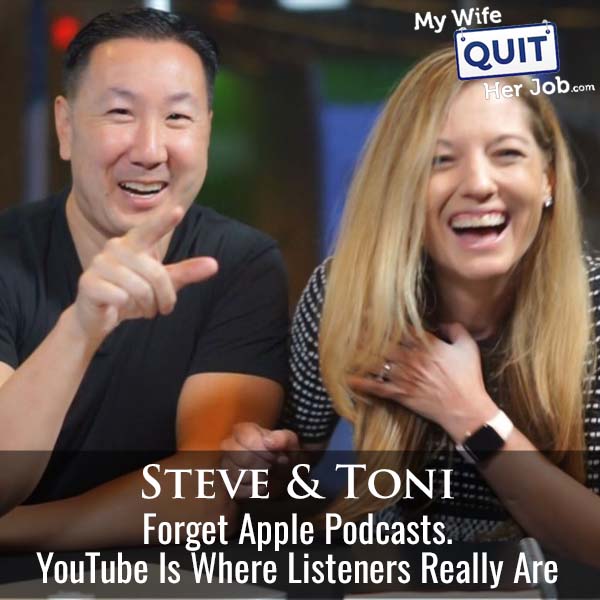609: Forget ple Podcasts. This Is Where Listeners Really Are

```html YouTube Surpasses Apple Podcasts, Spotify as Top Platform for Podcast Consumption In a significant shift in media consumption, YouTube has emerged as the leading platform for podcast listeners, surpassing traditional players like Apple Podcasts and Spotify. This trend, driven by technological advancements and changing listener habits, presents both opportunities and challenges for podcast creators.
The Rise of Video Podcasting For years, audio-only podcasts dominated the landscape. However, the integration of YouTube into everyday entertainment and the rise of video podcasting have reshaped the industry. The "My Wife Quit Her Job" podcast, hosted by Steve and Toni Chou, recently made the jump to YouTube after 11 years of audio-only episodes. This decision reflects a broader trend of podcasters recognizing the platform's growing influence.
Why YouTube?
Technological Integration: Modern TVs and streaming devices seamlessly integrate YouTube, making it easy for users to access podcasts on their televisions. YouTube TV: The increasing popularity of YouTube TV as a cable alternative has further promoted YouTube content, including podcasts. Shopping Integration: YouTube TV's shopping features allow viewers to purchase products directly from commercials, creating a more engaging and interactive experience. Changing Consumption Habits: Many individuals are now accustomed to consuming content on YouTube, making it a natural platform for podcasts.
Expert Perspectives Laura Moreno, a digital marketing consultant specializing in podcast growth, emphasizes the importance of adapting to this shift. "Podcasters who ignore YouTube are missing out on a massive audience," she says. "The platform offers unique opportunities for discoverability and engagement that audio-only platforms simply can't match. Video provides a deeper connection with the audience, and the ability to repurpose content into short-form videos for platforms like TikTok and Instagram Reels further expands reach."
However, some experts advise caution. Mark Thompson, a media analyst at TechTrends Research, notes the potential risks of combining video podcasts with existing YouTube channels that feature different types of content. "If a channel primarily features short-form videos, introducing long-form podcasts could alienate existing subscribers and negatively impact overall channel performance," he warns. "It's crucial to carefully consider the target audience and content strategy before making the switch."
Historical and Current Context The podcasting landscape has evolved significantly since its early days. Initially, Apple Podcasts dominated the market, serving as the primary distribution channel for most podcasters. Spotify later emerged as a major competitor, investing heavily in exclusive content and podcasting technology. However, YouTube's rise represents a new phase in the industry, driven by the platform's vast user base and video-centric approach.
The shift to YouTube also coincides with broader trends in online video consumption. Short-form video platforms like TikTok have gained immense popularity, influencing how people discover and consume content. Podcasters are increasingly leveraging these platforms to promote their shows and reach new audiences.
Challenges and Opportunities While YouTube offers significant opportunities for podcast growth, it also presents challenges. Creating video content requires additional resources and expertise. Podcasters must invest in equipment, editing software, and potentially studio space. Additionally, they need to adapt their content to a visual medium, considering factors like lighting, camera angles, and on-screen graphics.
However, the potential rewards are substantial. Video podcasts can attract a larger audience, generate higher engagement, and create new revenue streams through advertising, sponsorships, and merchandise sales. By embracing YouTube and adapting to the changing landscape, podcasters can position themselves for long-term success.
Conclusion The emergence of YouTube as a leading podcast platform marks a significant turning point in the industry. While challenges exist, the opportunities for growth and engagement are undeniable. Podcasters who embrace video and adapt to the platform's unique features will be best positioned to thrive in this evolving landscape. ```
Originally sourced from: WifeQuitHer Job
